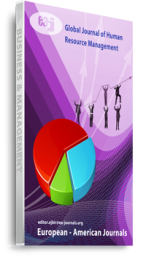The study is an assessment of the effect of the inter-relationship of labour-management relationship and industrial conflict in Nigeria Port Authority, Calabar and Port-Harcourt in a general scale. To effectively determine the interrelationship, four null hypotheses were formulated based on the identified major independent variable namely; leadership behavior, communication behavior, collective bargaining and implementation of employees-management agreement. A 30 items research questions were developed and used on 300 randomly selected employees of two ports (males and females). The sample will be made up of 190(63%) workers from Port-Harcourt and 110(37%) from Calabar Port. Multi-stage sampling techniwue will be employed, this will consist of the stratified, cluster, proportional and simple random sampling procedures respectively. Foremost, the stratified sampling procedure will be employed in dividing the entire study area into two major strata on the abses of two states (Cross Rivers and River State). Data will be collected by the researcher in company of two research assistants (who will be adequately trained). To evaluate labour-management relations and industrial conflicts, data collected during fieldwork will be subjected to editing, scoring and analysis. Descriptive statistics such as mean, percentage and frequencies will be reported. Pearson Product Moment Correlation (PPMC) test will be the statistical test for the hypotheses. Out of the four null hypotheses that were tested, three were rejected while one was accepted. The three rejected hypotheses were leadership behavior, collective bargaining and implementation of labour-management agreement while communication behavior was accepted. The research therefore recommend that mutual relationships are very critical in enhancing cordiality, trust building and engenders industrial harmony and peaceful coexistence in an organization. The study contributes to the body of knowledge in the sense that authoritative leadership breeds conflicts while democratic leadership engenders industrial harmony.
Keywords: Industrial relations, collective bargaining, industrial conflict, labour-management relations, trade unionism

